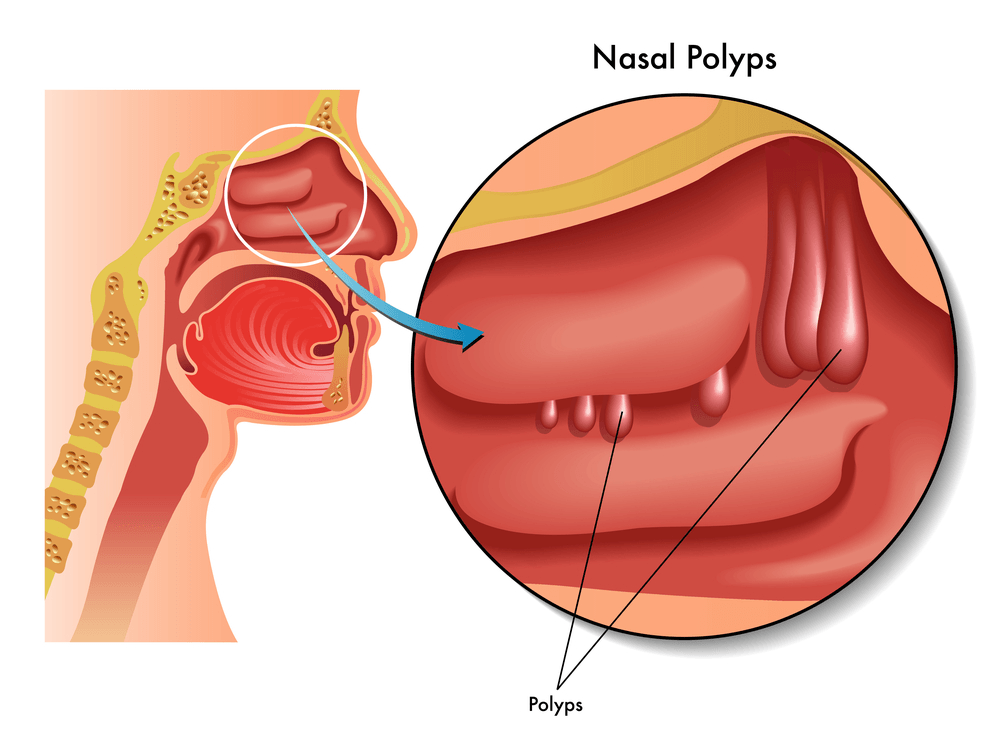Could Nucala Help With Your Nasal Polyps?
Nasal Polyps are a common condition linked to issues like chronic sinusitis and rhinosinusitis. They are small growths of tissues on the lining or sides of your nasal passages. Doctors typically use drugs in the form of injections or nasal sprays to shrink nasal polyps and reduce the swelling or pain, if any.
While these soft, non-cancerous growths are usually harmless, doctors may recommend surgery when other treatment options don't work. Recently the FDA approved Nucala (a monoclonal antibody) as an add-on treatment for Chronic Rhinosinusitis with Nasal Polyps (CRSwNP). But could Nucala actually be used to treat nasal polyps? Let’s find out.
About Nacula and How It Works
Mepolizumab or Nucala is essentially the first biologic approved by the FDA for patients with CRSwNP in the US. The monoclonal antibody was first approved for the treatment of eosinophilic asthma in children between the ages of six and eleven before it was approved for the treatment of CRSwNP in 2021. The FDA approval is based on numerous studies conducted on children, adolescents, and adults under clinically safe, well-organized conditions. The studies prove that the safety profile of Nucala is the same in pediatric patients between the ages 6 and 11 as it was for patients older than 11.
Nucala can inhibit interleukin-5, produced by Type-2 T helper cells and mast cells. CRSwNP is linked to high levels of interleukin-5, among other type 2 inflammatory cytokines. These issues are also associated with the eosinophilic tissue, which secretes type-2 inflammatory mediators.
Could Nucala Help with Nasal Polyps?
Among all patients with chronic rhinosinusitis (CRS), about 25–30% have CRSwNP. It is generally caused by tissue inflammation due to rising levels of eosinophils.
CRSwNP can lead to issues like nasal obstruction and nasal discharge. The condition is primarily associated with increased levels of IL-5 and is characterized as a type-2 inflammation. Since Nucala effectively helps inhibit IL-5, it would be safe to say that the biologic does help with Nasal Polyps.
Safety Information for Nucala
While Nucala is generally considered safe for treatments related to eosinophilia and rhinosinusitis, there are some safety considerations you should pay attention to.
- Nucala is not recommended for people with hypersensitivity issues. If you suspect you are experiencing a hypersensitive reaction like bronchospasm or hypotension after administration of Nucala, you may have to discontinue the treatment and consult your doctor.
- While Nucala is now used extensively for the treatment of eosinophilic asthma, it does not work for status asthmaticus.
- Some patients who used the medication reported having experienced Herpes Zoster infections and other similar complications.
- Nucala is typically not used to treat sudden respiratory issues and breathing problems.
Nasal polyps are associated with several conditions like infections, asthma, immune disorders, and aspirin-exacerbated respiratory disease.
A sinus specialist can give you insight into whether Nucala is the right treatment option for you. So, if you are dealing with nasal polyps or have further questions on the efficacy of Nucala for the treatment of nasal polyps, book an appointment with Dr. Thomas Higgins. Dr. Higgins is a fellowship-trained sinus surgeon and rhinologist who runs the premier sinus clinic in Louisville, Kentucky. You can call him at 502-894-8441 or contact him online!
Thomas S. Higgins, MD, MSPH
Father. Husband. Sinusitis Nerd.















